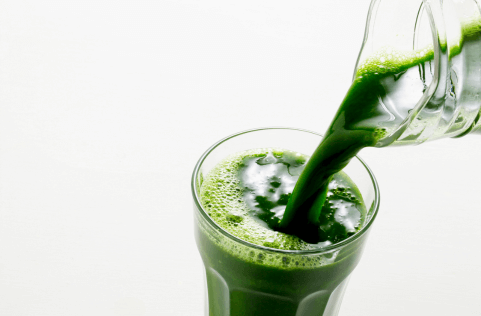In today’s day and age, the term wellness has become one of the most talked about topics. From Instagram influencers to healthcare providers - wellness culture is all the rage.
But, what does it even mean? And is focusing on wellness even helpful? Let’s dive deeper.

first off, what is wellness?
Wellness is defined as the state of being in good health, especially as an actively pursued goal. While the idea of health can be important to some it is imperative to understand that health is much more than just what you eat daily. Health encompasses your emotional, spiritual, environmental, mental, physical, and social wellbeing. As with most things, diet culture has co-opted the idea of wellness and has led to the term “wellness culture”.
what is wellness culture?
Wellness culture is a set of beliefs revolving around the idea that wellness is the ultimate goal in life and promotes measures to achieve this wellness ideal. Think: Instagram influencers promoting green juice, detoxes, spin classes, meditation, etc. Although it sounds positive on the surface, sometimes this pursuit of wellness has no boundaries and can have harmful effects on someone’s relationship with food and body.
how can wellness culture be harmful?
it can be masking a disordered relationship with food and body
Whenever people talk about any type of “lifestyle change” - make sure you are getting curious about what that means exactly. Check-in with yourself and try asking: Are these changes promoting any type of restriction or movement that causes you to turn away from internal cues? Are you feeling shame or guilt if you are not participating in certain activities or consuming certain types of food? How would this impact my relationship with food and body? Get curious with yourself about how others are approaching the idea of wellness and always, and we mean always, be skeptical when someone is suggesting any sort of dietary restriction - whether it be in the name of wellness/health or not.
it makes wellness feel inaccessible
Wellness culture usually promotes very specific products that are supposed to enhance your feeling of health and wellbeing. The problem is that most of these products come at a cost and can make an individual feel like they are “doing wellness wrong” if they’re not paying for the $30 spin class and sipping on a $17 green juice afterward. This can make the idea of wellness feel inaccessible and therefore unachievable and lead to feelings of shame or guilt. However, if improving your health is your goal, I can promise you that sipping green juices and going to expensive classes doesn’t need to be included if that’s not your thing.
it can promote health-ism
Health-ism is a belief system that sees health as the property and responsibility of an individual and ranks the personal pursuit of health above everything else, like world peace or being kind. It ignores the impact of poverty, oppression, war, violence, genetics, historical atrocities, and environmental factors (from traffic, pollution to clean water and nuclear contamination and so on). Health-ism equates your moral value as a person with your health status.
We want to equip you with the insight to avoid getting sucked into diet culture masking itself as wellness. Here are some accessible ways to do so (that don’t involve going on any sort of diet).

what to focus on instead
all forms of health
This includes examining not just physical health but also mental, environmental, emotional, spiritual, and social. While you may feel you are eating a nutrient-dense diet, if you’re feeling increasingly stressed or anxious around each meal time or you are unable to participate in social events because food may be present - it warrants the question: are these behaviors health promoting?
Check in with yourself. How are these areas of your life? Is there one area that is in need of more attention than the others? How do these areas of health intersect in your life? Start by asking yourself these questions to get to know where you are health-wise from a more holistic perspective instead of narrowing in on solely physical health.
focus on internal cues
When was the last time you sat down and asked yourself what you needed? Focusing more on internal cues to guide you for when, what and how much to eat and different ways to move helps foster a deeper connection between you and your body. Ditch the idea of what you feel you’re “supposed to be doing” and start getting curious about what you actually want and or need to do!
focus on your relationship with food and body
This is a big one. Understanding where you are right now in your journey with your own relationship with food and body. Get curious about where the work needs to be done and seek out additional support to help guide you through.
whatever serves you
The good news is that improving health is not a one size fits all. This means: health does not have to be green juices and spin classes. I repeat, health does not have to be green juices and spin classes. It can be anything that feels and works for you. Structuring our motives of achieving health around what others promote can lead to unsustainable actions that just don’t feel right. Finding what works for you is key! Also it is important to note that if health is not currently the top thing on your list - that’s okay. It doesn’t make you a good or bad person if health is or isn’t presently a goal. But, remember, you still are deserving of self care and self respect all the time. No matter what.

how nourishrx can support you
Navigating the idea of wellness in a diet culture can be difficult and we are still here to support you every step of the way. With multiple services for your unique needs, we're here for you!
Comments Off on All About Wellness Culture